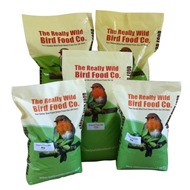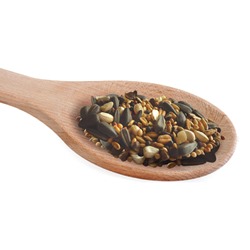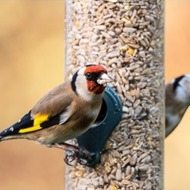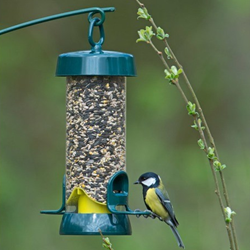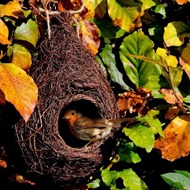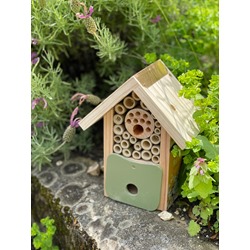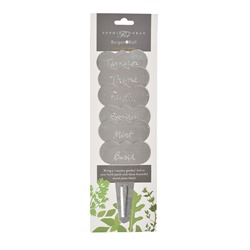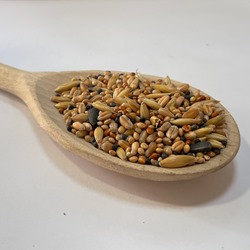
Sunflowers Prove to be an Unlikely Saviour for Hampshire Farm
Sunflowers make a colourful crop, and one that has helped turn an ailing Hampshire farm into a thriving business. Mike Abram reports
Sunflowers seem an unlikely saviour for an arable farm, even one in the sunnier climes of Hampshire.
But the crop, along with millet, naked oats and, from next year, plain canary, has been central to Richard and Lesley Smith's thriving mail-order bird seed business, which has grown over 300% in the past two years.
Just under four years ago the couple gave themselves five years to turn around Street End Farm in Bishops Waltham. The 144ha (360 acres) farm was struggling along with a sideline business wholesaling poultry corn and birdseed to various outlets.
From there the business expanded into producing a small range of birdseed mixes, which the farm sold wholesale to garden centres. But the farm just wasn't big enough to compete with the major retailers.
"We'd started off by selling hay and straw from the farm," explains Richard. "And then we were asked whether we could do hard feed for horses."
From there the business expanded into producing a small range of birdseed mixes, which the farm sold wholesale to garden centres. But the farm just wasn't big enough to compete with the major retailers.
Richard and Lesley Smith saw their mail order seed business grow by 300% in the past two years.
"The margins were low and payments slow, and while our turnover was increasing, the profits were reducing," Richard recalls. "The business needed a huge investment and we didn't have the confidence to do that."
Instead, the couple decided to set up supplying a small range of wild bird seed mixes via a mail-order website, where they wouldn't be so constrained by price. The key wasbeing able differentiate their offering, Lesley says.
"We identified an opportunity for us growing as much of the product on the farm. We knew if we grew it ourselves we would be in control of quality, and be able to appeal to customers by being locally produced with lower air miles."
Their experience with the wholesale market had given Richard a good understanding of what mixes would work, and, as importantly, he also had knowledge of seed cleaning. "It has been quite an asset," Lesley notes.
Feedback
Trips to local farmers' market in Hampshire also proved to be a valuable exercise in testing products and getting feedback from customers. "It helped us appreciate we did have good products, but also where we needed to alter. If two or three people ask for the same thing, like a robin mix, then you listen," Richard says.
The pair produces, under the banner, around 10 mixes for use on bird tables and in seed feeders. Prices range from £19.95 for a 20kg bag of the farm's original basic seed mix to £36.95 for the tidy garden mix from which there is no waste. "None of the seeds will grow under the bird table," Lesley explains.
Other mixes cater more specifically for finches or robins. In total, the couple now sell over 300 products from the website, including bird feeders, boxes and meal worms.
Around 10% of the farm's output goes into the bird seed mixes. Some of the mixes contain 70-80% farm produced seeds, other less so. The tidy garden mix, for example, contains a range of ingredients the farm couldn't produce, such as peanut granules.
As well as the specialist crops, Richard also grows wheat and oilseed rape, a small proportion of which is used in bird seed mixes.
There has been a steeper learning curve for growing some of the specialist crops, Richard admits. "It has made farming a little more interesting."
Trickey harvest
Sunflowers, in particular, have been a challenge at either end of the season. "They are not easy to establish; everything likes to eat sunflowers - slugs, pigeons, hares, rabbits, so you really have to focus on establishment."
This summer's crop was drilled on 21 May into sub-soiled land that had three passes with a Vaderstad Carrier in an effort to get a dry, fine seed-bed. The attention to detail is working - the crop this year is probably the best Richard has grown, but the trickiest bit is still yet to come - the harvesting.
"That's when the language gets a bit blue," Lesley says.
"Yours would too if you were trying to combine in November," Richard retorts.
But it isn't just the weather that makes it tricky. It isn't easy to get the sunflowers through the combine without blockages.
"Every year we've made more adaptations to the header. We've now put two to three foot high sides on to it to try and stop the sunflowers hooking over after the knife has cut them, while the reel is also completely blanked out. It looks a bit like the sails of a binder. What I'd really like is to get an old header and completely redesign it."
Specialist headers for sunflowers are available, but they cost up to £40,000 - a bit too expensive when you're only growing 10ha, Richard points out.
Rapid growth
Yields have been variable, ranging from 1.75-2.5t/ha, but they are a key ingredient in the mixes. "Nearly all garden birds like them; they're a home-grown alternative to peanuts."
The millet, white or yellow, is a bit easier to establish and grow. Typically that is harvested in late September, yielding 3.1-4.1t/ha. "I'd also like to grow red millet," Richard says. "Apparently tree sparrows love it."
The rapid growth of the business is necessarily meaning more of the specialist crops need to be grown to keep up with demand, so for the first time, seven acres of plain canary will be grown next year, along with an extra 4ha of sunflowers taking the total up to 10ha, 6ha of millet (up from 4.4ha) and 2.8ha of naked oats.
"Within two years I hope over 40ha of the farm will be for bird seed mixes, including the small areas of wheat and oilseed rape we use."
Richard does all the cleaning and mixing for the 10 different seed mixes, usually not too far in advance of sale. Fortunately farming and seed mix production are quite good bedfellows, he says. "The bird food business is at its quietest during the summer when the farm is at its busiest, and vice-versa in the winter."
Happily for the future of the farm sales are booming. "This year the bird food business will turn over more than the farm does," Richard says. "We've got a good product, and that makes it all worthwhile."
 Back
Back Bird Foods
Bird Foods
 Seed Mixes
Seed Mixes Straight Seeds
Straight Seeds Mealworms & Worms
Mealworms & Worms Chicken Feed
Chicken Feed Duck Food
Duck Food Peanuts & Peanut Butter
Peanuts & Peanut Butter Suet & Fat Balls
Suet & Fat Balls No Mess Bird Seed
No Mess Bird Seed Wheat Free Bird Seed
Wheat Free Bird Seed Sunflower Seeds
Sunflower Seeds Softbill Bird Food
Softbill Bird Food Bulk Bird Seed
Bulk Bird Seed Trial Packs
Trial Packs Pick & Mix
Pick & Mix Mini Pick & Mix
Mini Pick & Mix Birdie Basics: Budget Bird Food
Birdie Basics: Budget Bird Food Food for Small Birds
Food for Small Birds Back
Back Bird Feeders
Bird Feeders
 Seed Feeders
Seed Feeders Peanut Feeders
Peanut Feeders Peanut Butter Feeders
Peanut Butter Feeders Suet & Fat Feeders
Suet & Fat Feeders Window Feeders
Window Feeders Hanging Feeders
Hanging Feeders Feeding Stations
Feeding Stations Ground Feeders
Ground Feeders Easy Clean Feeders
Easy Clean Feeders Bird Tables
Bird Tables Seed Trays
Seed Trays Bird Baths & Drinkers
Bird Baths & Drinkers Feeder Accessories
Feeder Accessories Feeder Hygiene
Feeder Hygiene Squirrel Proof Bird Feeders
Squirrel Proof Bird Feeders For the Kids
For the Kids Niger Seed Feeders
Niger Seed Feeders Mealworm Feeders
Mealworm Feeders Bird Food Storage
Bird Food Storage Fat Ball Feeders
Fat Ball Feeders Tube Feeders
Tube Feeders



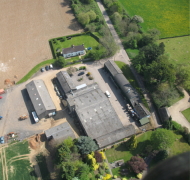 Our Farm
Our Farm
 Tips & Advice
Tips & Advice
Contact Us

